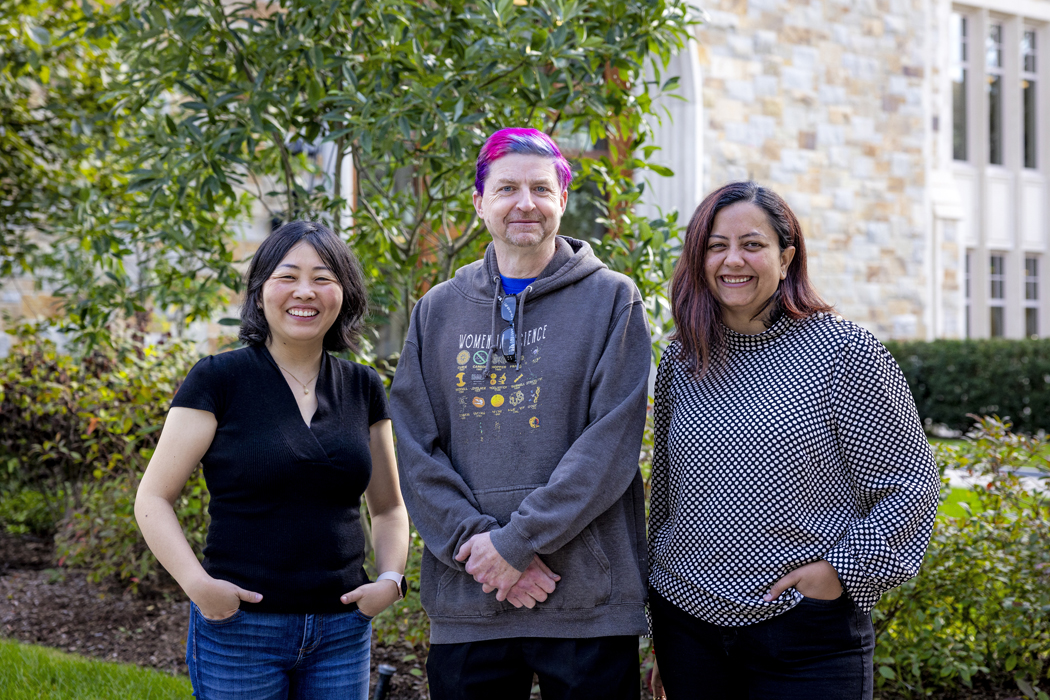NSF grant enables BC researchers to expand reach of STEM education
A cross-disciplinary team including faculty from the Lynch School of Education and Human Development and the Engineering Department has been awarded a three-year, $1.6 million grant from the National Science Foundation—part of a larger $3 million collaborative project—that will sustain its efforts in bringing STEM education to marginalized youth.
The award comes on the heels of a three-year, $600,000 NSF grant to the same BC collaborators to prepare high school STEM instructors to teach engineering in public school systems.
The new project, which includes partners from the University of South Alabama and the non-profit Maine Mathematics and Science Alliance, is based on research that suggests that transdisciplinary learning experiences which integrate knowledge across STEM disciplines—in this case, engineering, computer science, and horticulture—will successfully engage both teachers and students.

Helen Zhang, G. Michael Barnett, and Avneet Hira (Caitlin Cunningham)
The BC researchers include principal investigator G. Michael Barnett, a professor of science education and technology in the Lynch School Teaching, Curriculum, and Society Department; co-principal investigator Avneet Hira, an assistant professor of engineering and the Sabet Family Dean’s Faculty Fellow; and co-principal investigator Helen Zhang, a Lynch School research associate professor.
A total of 60 teachers and nearly 600 high school students will be recruited from historically excluded, low-income, and underrepresented populations from both rural and urban settings in Massachusetts, Maine, and Alabama. The teachers will participate in summer institutes and two years of professional development activities that immerse them in the same transdisciplinary learning experiences that their students will eventually undergo. Teachers will then co-design their curriculum with the project team for use in their respective local contexts.
Teachers and students will design smart, desktop greenhouses by connecting electronic sensors that can detect light or other environmental data to microcontrollers that activate devices for watering plants and regulating environmental factors such as temperature or illumination.
“We are grateful to the Schiller Institute for Integrated Science and Society for their incubation funding, and to the National Science Foundation for supporting our team’s efforts to continue our work to implement instructional approaches that motivate and reinforce youth to learn STEM,” said Barnett.
Zhang said the grant will aid the team’s efforts to “boost the capacity and confidence of middle and high school teachers to engage students in integrated STEM.”
“It’s exciting to receive support for work that pushes the boundaries of traditional education practices that often separate learning into disciplinary silos,” said Hira. “Along with our partners, we hope to learn more about how we can create authentic transdisciplinary learning experiences.”
Collaborators from the University of South Alabama include Shenghua Zha, an associate professor in the Department of Counseling and Instructional Sciences, Instructional Design and Development, Educational Media, and Educational Technology; and Na Gong, the Warren Nicholson Professor of Electrical and Computer Engineering.
Also involved is Ruth Kermish-Allen, executive director of the Maine Mathematics and Science Alliance, which seeks to expand equitable access to STEM education and empower educators as they teach K-12 science, technology, engineering, and math.
